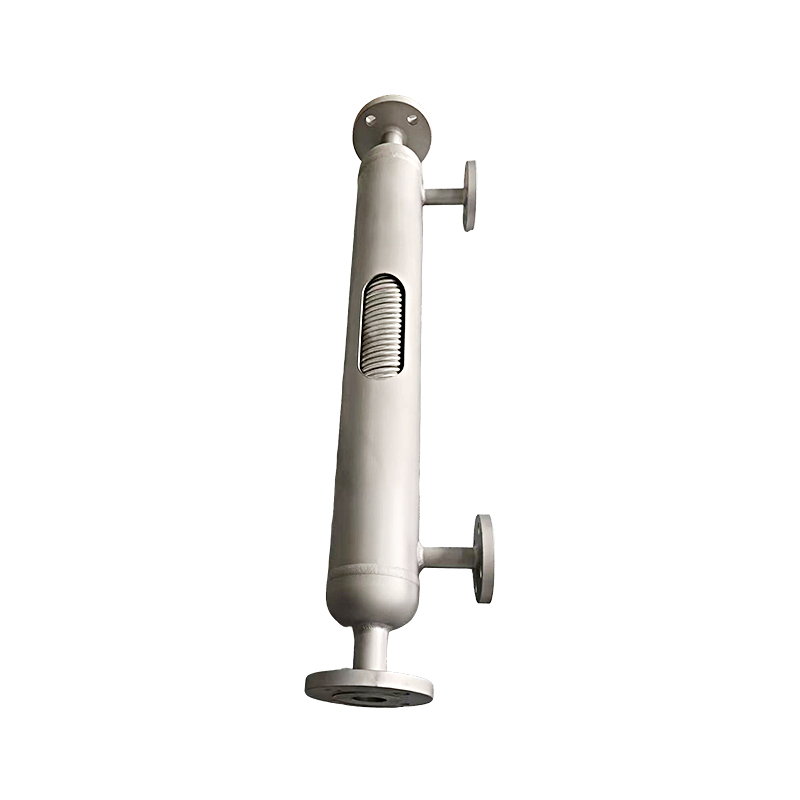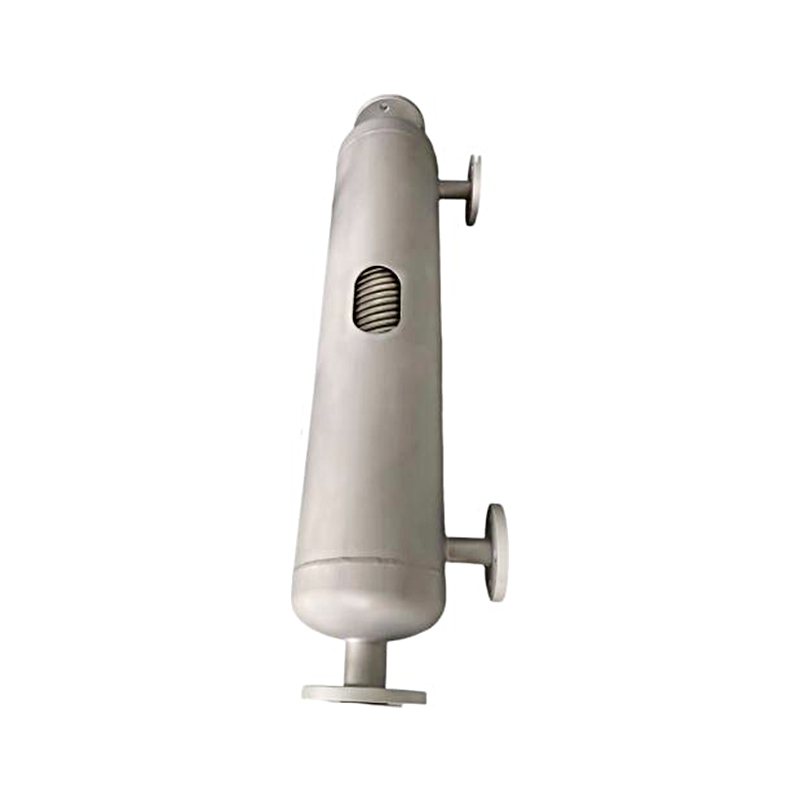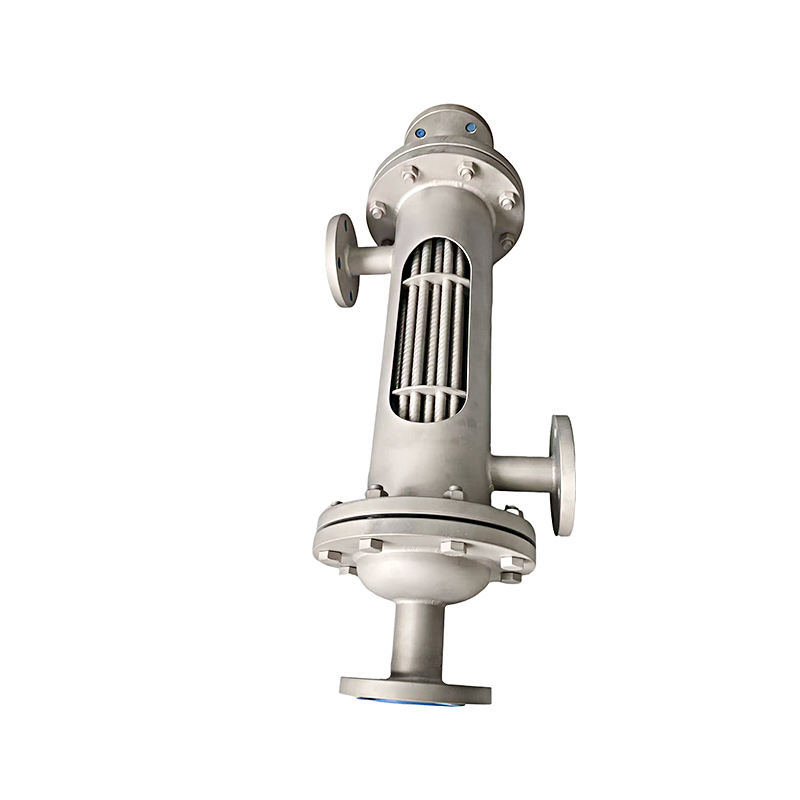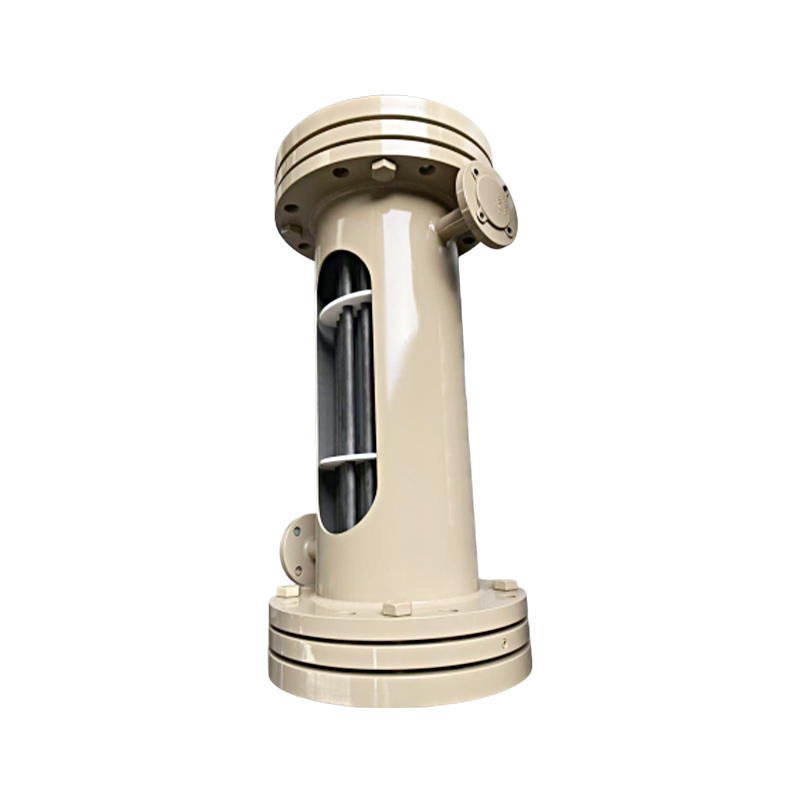Corrosion-resistant silicon carbide heat exchanger braves high-corrosion environment
Release Time : 2025-05-07
In many industrial fields such as chemical, pharmaceutical, and seawater desalination, equipment is exposed to highly corrosive media for a long time and faces serious corrosion problems. Traditional metal materials often cannot withstand these harsh conditions, resulting in shortened equipment life and increased maintenance costs. However, with the advancement of materials science, a new solution, corrosion-resistant silicon carbide heat exchanger, is gradually becoming an ideal choice for dealing with highly corrosive environments.
1. Unique properties of silicon carbide materials
Silicon carbide is a compound composed of silicon and carbon with extremely high hardness and excellent chemical stability. It not only maintains structural stability at extreme temperatures, but also exhibits strong corrosion resistance to most acid and alkali solutions. In addition, the thermal conductivity of silicon carbide is very high, which makes it one of the ideal materials for manufacturing high-efficiency heat exchangers. Compared with traditional materials, silicon carbide heat exchangers can provide long-lasting and reliable performance in more demanding working environments.
2. Design optimization improves durability
In order to give full play to the advantages of silicon carbide materials, modern corrosion-resistant silicon carbide heat exchangers have made many optimizations in design. For example, the use of a fully welded structure instead of the traditional flange connection method can effectively prevent leakage and improve overall sealing; at the same time, precision machining technology is used to ensure close fit between components and reduce the risk of crevice corrosion. In addition, some high-end models are also equipped with an intelligent monitoring system that can monitor the operating status in real time, timely warn of potential faults, and further extend the service life of the equipment.
3. Application cases show actual effects
In actual applications, corrosion-resistant silicon carbide heat exchangers have proven their excellent performance. For example, in some chemical production processes that require the treatment of strong acid or alkali media, the use of silicon carbide heat exchangers significantly extends the maintenance cycle of the equipment, reducing downtime and maintenance costs. Similarly, in seawater desalination projects, because seawater contains a lot of salt and other corrosive substances, ordinary metal materials are easily corroded, while silicon carbide heat exchangers can operate stably for many years, ensuring the continuity and reliability of the system.
4. Win-win for environmental protection and economic benefits
In addition to its excellent corrosion resistance, the corrosion-resistant silicon carbide heat exchanger also shows unique advantages in environmental protection and economic benefits. First, due to its strong durability, it reduces the waste generated by frequent equipment replacement, which helps to reduce environmental pollution. Secondly, although the initial investment may be high, the total cost of ownership is actually lower in the long run due to low maintenance requirements and long service life. This is undoubtedly an attractive option for companies pursuing sustainable development.
5. Outlook for future development
With the continuous advancement of science and technology, the corrosion-resistant silicon carbide heat exchanger is also continuing to evolve. On the one hand, researchers are exploring how to further improve the purity and uniformity of silicon carbide materials to enhance their mechanical strength and thermal stability; on the other hand, with the help of advanced manufacturing processes such as 3D printing technology, it is expected to achieve more complex and sophisticated designs to meet the needs of more diverse application scenarios. In addition, combined with the Internet of Things and big data analysis, future silicon carbide heat exchangers may have self-diagnosis and predictive maintenance functions, bringing higher operational efficiency to enterprises.
In summary, corrosion-resistant silicon carbide heat exchanger is becoming a key tool to solve the problem of highly corrosive environment with its excellent corrosion resistance, optimized design and wide application prospects. Whether it is chemical, pharmaceutical or other industries involving harsh working conditions, they can all benefit from it.
1. Unique properties of silicon carbide materials
Silicon carbide is a compound composed of silicon and carbon with extremely high hardness and excellent chemical stability. It not only maintains structural stability at extreme temperatures, but also exhibits strong corrosion resistance to most acid and alkali solutions. In addition, the thermal conductivity of silicon carbide is very high, which makes it one of the ideal materials for manufacturing high-efficiency heat exchangers. Compared with traditional materials, silicon carbide heat exchangers can provide long-lasting and reliable performance in more demanding working environments.
2. Design optimization improves durability
In order to give full play to the advantages of silicon carbide materials, modern corrosion-resistant silicon carbide heat exchangers have made many optimizations in design. For example, the use of a fully welded structure instead of the traditional flange connection method can effectively prevent leakage and improve overall sealing; at the same time, precision machining technology is used to ensure close fit between components and reduce the risk of crevice corrosion. In addition, some high-end models are also equipped with an intelligent monitoring system that can monitor the operating status in real time, timely warn of potential faults, and further extend the service life of the equipment.
3. Application cases show actual effects
In actual applications, corrosion-resistant silicon carbide heat exchangers have proven their excellent performance. For example, in some chemical production processes that require the treatment of strong acid or alkali media, the use of silicon carbide heat exchangers significantly extends the maintenance cycle of the equipment, reducing downtime and maintenance costs. Similarly, in seawater desalination projects, because seawater contains a lot of salt and other corrosive substances, ordinary metal materials are easily corroded, while silicon carbide heat exchangers can operate stably for many years, ensuring the continuity and reliability of the system.
4. Win-win for environmental protection and economic benefits
In addition to its excellent corrosion resistance, the corrosion-resistant silicon carbide heat exchanger also shows unique advantages in environmental protection and economic benefits. First, due to its strong durability, it reduces the waste generated by frequent equipment replacement, which helps to reduce environmental pollution. Secondly, although the initial investment may be high, the total cost of ownership is actually lower in the long run due to low maintenance requirements and long service life. This is undoubtedly an attractive option for companies pursuing sustainable development.
5. Outlook for future development
With the continuous advancement of science and technology, the corrosion-resistant silicon carbide heat exchanger is also continuing to evolve. On the one hand, researchers are exploring how to further improve the purity and uniformity of silicon carbide materials to enhance their mechanical strength and thermal stability; on the other hand, with the help of advanced manufacturing processes such as 3D printing technology, it is expected to achieve more complex and sophisticated designs to meet the needs of more diverse application scenarios. In addition, combined with the Internet of Things and big data analysis, future silicon carbide heat exchangers may have self-diagnosis and predictive maintenance functions, bringing higher operational efficiency to enterprises.
In summary, corrosion-resistant silicon carbide heat exchanger is becoming a key tool to solve the problem of highly corrosive environment with its excellent corrosion resistance, optimized design and wide application prospects. Whether it is chemical, pharmaceutical or other industries involving harsh working conditions, they can all benefit from it.








